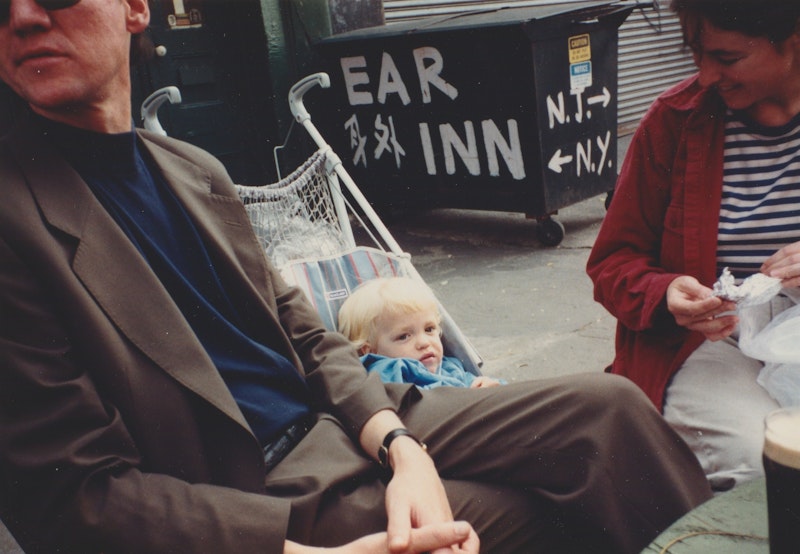There’s a difference between actively disliking a band or solo artist—that’d be ABBA, Journey, Heart, Bread, the Doobie Brothers, Rush, the Eagles, among others for me—and feeling mostly ambivalent, save one or two great songs. Joe Jackson falls into that category: never bought any of his records, and wasn’t a fan of his hit “Is She Really Going Out with Him?,” but his 1982 “Steppin’ Out” was a song I was always happy to hear on the jukebox or radio. The lyrics aren’t much (“We are young, but getting old before our time”), but the sound, mood and Jackson’s vocal is something else. In the early-1980s, I spent a lot of time at Baltimore’s best bar, the Club Charles, right across from the Charles Theatre, and for a long stretch, “Steppin’ Out” and Cyndi Lauper’s joyous “Girls Just Want to Have Fun” were always on the box, and unlike other people it didn’t bother me a bit. I liked the notion of Jackson better than, say, Blue Oyster Cult—their still-haunting “Don’t Fear the Reaper” came out of nowhere—but really, aside from “Steppin’ Out,” pretty much wrote him off.
One Sunday afternoon in Manhattan, mid-1990s, I was early for a rendezvous with a couple of friends at the Ear Inn (the outside pictured below, me on the left, in a suit, and New York Press colleague Phyllis Orrick and her son Alexander; which is the year in question), ordered a pint, sat down, and there was Joe Jackson, alone, reading Sunday’s New York Times. There was a Simon & Garfunkel tape on the bar’s sound system, and I let out an audible groan, to which Jackson gave a hearty laugh, and we chatted for 10 minutes or so about movies and magazines, and I found him a smart and likable guy. My friends arrived, we shook hands, he gave me a “Cheers, mate!” and that was that.
The Ear, on E. Spring St. in Lower Manhattan, not far from the Hudson, was another very popular bar—still is, I’m told—that I frequented, and for some reason it was usually on Sundays. (My first place after moving to Manhattan in late-1987 was an apartment at Hudson and Vestry Sts., just a Rafael Devers homer away from the Holland Tunnel. There was a bar Michael Gentile and I went to called The Printer’s Pub, which mostly served blue-collar inkers and what, before the term was abused, was a reasonably amiable “dive” for a beer or two. One night, early in 1988, I had dinner with a college classmate in Soho and then went to the Printer’s Pub for a nightcap. Peter ordered a Courvoisier, and I still chuckle remember the disgusted look the bartender gave him, before he, red-faced, said, “I’ll have a Bud.”)
Phyllis, whom I knew from Baltimore City Paper days—and a “character” to beat all, tripping up local politicians at bull roasts with uncomfortable questions—was an editor at New York Press for five years, before she and the family moved to Berkeley. Unlike in Baltimore, before she was a mom, it was tough to get Phyllis out after work. We’d cajole her at 6:30 at the paper’s Puck Building offices, but she had a regimen, explaining that young Alexander was napping at that time, and it was her “golden hour” to have a drink, relax and watch the evening news. It was a sensible explanation, but the rest of us missed her company.
Take a look at the clues to figure out what year it is: the Republic of Macedonia is admitted to the (worthless) United Nations; Miguel Indurain wins Tour de France; Toni Morrison awarded Nobel Prize for literature; the Montreal Canadiens win their 24th Stanley Cup; Vince Foster (allegedly) takes his own life; Rocko’s Modern Life makes its debut on Nickelodeon; Pete Davidson is born and Vincent Price dies; and Eddie Vedder is arrested in New Orleans after a drunken brawl.
—Follow Russ Smith on Twitter: @MUGGER2023

